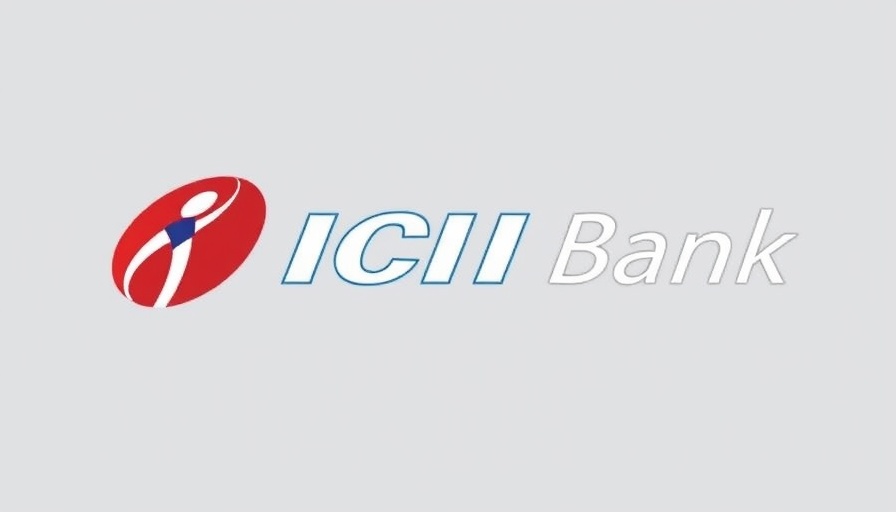
Understanding ICICI Bank: A Cornerstone of Institutional Investment
As ICICI Bank Limited (IBN) continues to make waves in the financial sector, its stock performance serves as a critical indicator for investors keen on strategic wealth creation. Serving as a pillar in both the Indian banking industry and global financial markets, the bank’s operational strategies can be instructive for executives and business leaders considering their capital structures.
Challenging The Norm: Debt vs. Equity for Service Firms
One of the most pressing questions for entrepreneurs looking to expand is whether to leverage debt or equity. Debt financing might seem like a tempting route with lower interest rates available in today's market; however, excessive reliance on loans can lead to fiscal stress. On the other hand, equity seems to gear towards sustainability and can bring not only capital but also a network of strategic resources. Founders must weigh these options against current market conditions while considering long-term operational efficiency—a balance ICICI Bank adeptly showcases.
Private Equity: A Growth Catalyst for Service Firms
The role of private equity in scaling small businesses cannot be overstated. Firms supported by institutional capital often find themselves better poised to seize market opportunities. This type of funding allows for an agile approach to capital deployment, focusing on value creation and strategic growth. Executives should consider how they are positioning their firms in relation to investors' sentiment towards equity-led growth—a crucial lesson exemplified by leading banks like ICICI.
IPO Readiness: What the Markets Expect
With the financial landscape shifting frequently, being poised for a public offering (IPO) is more critical than ever. Founders must focus not solely on increasing revenue but also on ensuring their financial metrics align with institutional expectations. This entails adhering to 'investor-grade' standards that review EBITDA, acquisition readiness, and operational transparency—a perspective modeled by successful enterprises like ICICI Bank.
Resilience in M&A: Insights From Financial Giants
In today's marketplace, mergers and acquisitions (M&A) have become a vital strategy for growth. Understanding what institutional investors look for—such as solid revenue models, an efficient capital stack, and EBITDA optimization—can significantly impact a firm's ability to secure a lucrative exit. As banks like ICICI navigate these waters, upcoming founders can learn valuable lessons on executing seamless transitions, allowing for sustainable growth through acquisition strategies.
Conclusion: Strategic Takeaways for Growing Firms
For those leading the charge in their respective industries, understanding the operational strategies exemplified by ICICI Bank is paramount. Balancing capital needs with growth aspirations, while remaining focused on shareholder value, can secure a company’s success in a fluctuating market. As businesses navigate these decisions, they must adopt intellectual frameworks inspired by successful financial institutions while rigorously preparing for public engagement.
 Add Row
Add Row  Add
Add 


Write A Comment